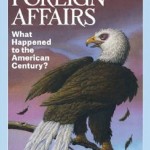Globalization is in trouble. A populist backlash, personified by U.S. President Donald Trump, is in full swing. A simmering trade war between China and the United States could easily boil over. Countries across Europe are shutting their borders to immigrants. Even globalization’s biggest boosters now concede that it has produced lopsided benefits and that something will have to change.
Today’s woes have their roots in the 1990s, when policymakers set the world on its current, hyperglobalist path, requiring domestic economies to be put in the service of the world economy instead of the other way around. In trade, the transformation was signaled by the creation of the World Trade Organization, in 1995. The WTO not only made it harder for countries to shield themselves from international competition but also reached into policy areas that international trade rules had not previously touched: agriculture, services, intellectual property, industrial policy, and health and sanitary regulations. Even more ambitious regional trade deals, such as the North American Free Trade Agreement, took off around the same time.
DANI RODRIK is Ford Foundation Professor of International Political Economy at the John F. Kennedy School of Government at Harvard University and President-Elect of the International Economic Association.
This article appeared in the Foreign Affairs 2019 July/August edition. It is republished here with permission.
This article was originally published by Foreign Affairs. You can read the rest of the article here.
You can read exclusive content from Gateway House: Indian Council on Global Relations, here.
Copyright © 2019 by the Council on Foreign Relations, Inc.


